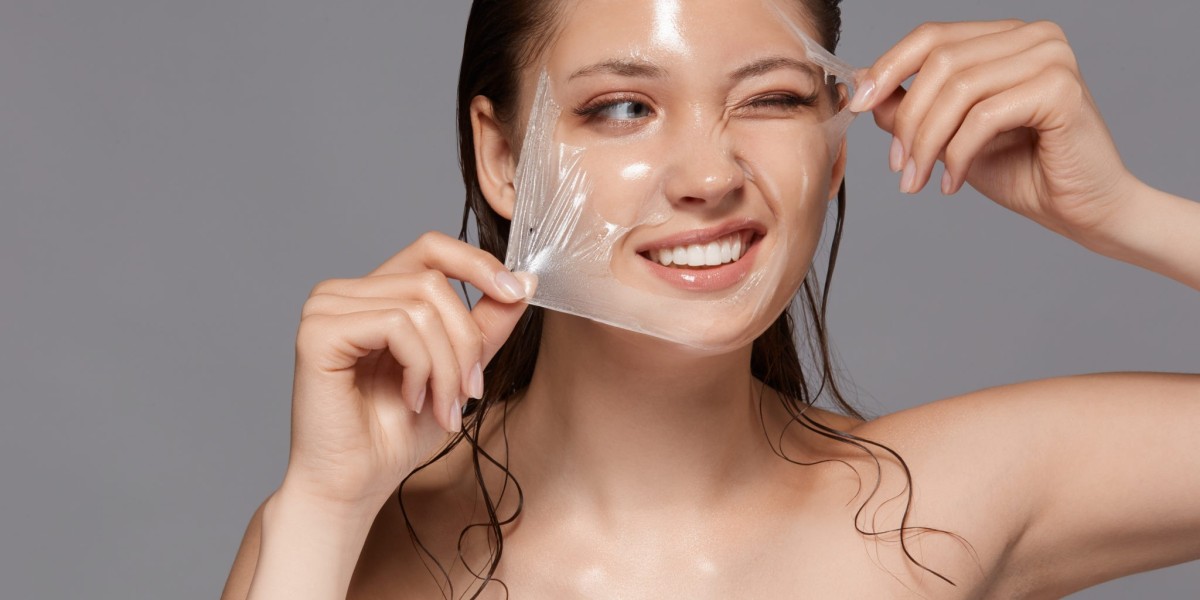Acne and the scars it leaves behind can be a constant struggle—impacting not just your skin but also your confidence. In Islamabad, factors like climate fluctuations, air pollution, and lifestyle habits often contribute to persistent acne issues and post-inflammatory marks. While topical treatments and medications provide some relief, they often fall short of delivering dramatic or lasting results. For those seeking an effective and proven solution, Acne scar chemical peel Islamabad treatments have emerged as a popular choice. Acne scar chemical peel Islamabad treatments work by exfoliating the skin, promoting new cell turnover, and targeting both active acne and the scars it leaves behind.
In this blog, we’ll explore how chemical peels treat acne and acne scarring, which types of peels are most effective, and what residents of Islamabad should expect from the procedure.
Understanding Acne and Acne Scarring
What Is Acne?
Acne is a skin condition caused by the blockage and inflammation of hair follicles due to oil, dead skin cells, and bacteria. It can manifest as:
Whiteheads or blackheads
Papules or pustules
Nodules or cysts (severe acne)
What Are Acne Scars?
When acne penetrates deep into the skin, it can damage tissue beneath the surface. As the acne heals, the skin may produce too little or too much collagen, resulting in:
Atrophic scars (depressed scars like icepick, boxcar, or rolling scars)
Hypertrophic scars (raised scars)
Post-inflammatory hyperpigmentation (dark spots)
What Are Chemical Peels?
Chemical peels are skin-resurfacing treatments that use a chemical solution to exfoliate the top layers of skin. As the treated skin peels off, new skin forms underneath that is smoother, more even-toned, and often free of blemishes.
The procedure is classified into three main types based on the depth of penetration:
Superficial peels: Mild acids like glycolic or salicylic acid to gently exfoliate
Medium peels: Stronger acids like TCA (trichloroacetic acid) for deeper exfoliation
Deep peels: Phenol or high-concentration TCA for intensive resurfacing
How Do Chemical Peels Help with Acne?
1. Unclogging Pores
Salicylic acid, a beta-hydroxy acid (BHA), is oil-soluble and penetrates deep into the pores to dissolve sebum and dead skin cells. This helps to clear current breakouts and prevent future acne by minimizing pore congestion.
2. Reducing Bacteria
Chemical peels can also reduce acne-causing bacteria such as Propionibacterium acnes on the skin's surface, contributing to fewer active pimples and breakouts.
3. Controlling Oil Production
Overactive sebaceous glands can contribute to oily skin and clogged pores. Certain peels help balance oil levels, creating a less acne-prone environment.
How Do Chemical Peels Help with Acne Scars?
1. Stimulating Collagen Production
Medium and deep chemical peels stimulate the skin’s healing response, encouraging the production of new collagen. This helps fill in depressed acne scars and improve overall skin texture.
2. Smoothing Skin Texture
By removing the outer damaged layers of the skin, chemical peels help smooth out uneven surfaces caused by scarring and roughness. Over time, this leads to a softer and more uniform skin texture.
3. Fading Post-Inflammatory Hyperpigmentation (PIH)
Chemical peels accelerate cell turnover, which helps fade dark spots left behind by acne. Ingredients like glycolic acid and lactic acid are especially effective at evening out skin tone.
Best Chemical Peels for Acne and Acne Scars
1. Salicylic Acid Peel
Ideal for active acne
Penetrates oily skin and dissolves debris in pores
Mild exfoliation with minimal downtime
2. Glycolic Acid Peel
Suitable for fading dark spots and improving skin tone
Helps with early-stage acne scars
Encourages cell turnover
3. TCA Peel (Trichloroacetic Acid)
Effective for deeper acne scars and pigmentation
Promotes collagen production
Requires more downtime but delivers stronger results
4. Jessner’s Peel
A combination of salicylic acid, lactic acid, and resorcinol
Excellent for both acne treatment and hyperpigmentation
Controlled exfoliation with moderate recovery
Why Islamabad Residents Benefit from Acne Scar Peels
Islamabad's environment presents unique skin challenges:
High UV exposure can worsen acne and cause pigmentation
Dry winters often lead to flaky, textured skin
Pollution and dust clog pores and lead to breakouts
Chemical peels not only address these skin problems effectively but also work well when customized for different skin tones and types—an important consideration for South Asian skin which can be prone to pigmentation if treated improperly.
What to Expect During the Procedure
Consultation:
A dermatologist evaluates your skin type, acne severity, and scarring pattern. They will choose the appropriate peel type and strength for you.Preparation:
Your skin is cleansed and prepped. For stronger peels, pre-treatment skincare may be prescribed for 1–2 weeks.Application:
The chemical solution is applied and left for a few minutes. You may feel a tingling or mild burning sensation.Post-Care:
Moisturizer and sunscreen are applied. You’ll receive aftercare instructions including hydration, sun protection, and avoiding active ingredients for a few days.
Post-Peel Care Tips
Do not pick or peel the skin manually
Use a gentle cleanser and a fragrance-free moisturizer
Apply a broad-spectrum sunscreen daily
Avoid direct sun exposure for at least one week
Stay hydrated and avoid makeup for 24–48 hours post-peel
Following your dermatologist's instructions is crucial to avoid complications such as infection or unwanted pigmentation.
How Many Sessions Are Needed?
The number of sessions depends on your skin condition and the type of peel used. For acne and mild scars:
Light peels: May require 4–6 sessions spaced 2–4 weeks apart
Medium peels: 2–3 sessions spaced 6–8 weeks apart
Deep peels: Usually done once or twice a year
Your provider will design a customized treatment plan based on your needs.
Are Chemical Peels Safe for All Skin Tones?
Yes—with professional supervision. While chemical peels are generally safe, those with medium to deep skin tones (common in Pakistan) need extra care to avoid side effects like hyperpigmentation. Always go to an experienced dermatologist who understands ethnic skin.
Final Thoughts
If you’re struggling with persistent breakouts or the scars they’ve left behind, chemical peels offer an excellent non-surgical option to reclaim your skin’s clarity and smoothness. With customized treatments and expert care, Acne scar chemical peel Islamabad procedures can help you achieve long-term results and greater skin confidence.
To get started with a tailored acne peel plan, consult the experts at Dynamic Clinic. Their board-certified dermatologists provide personalized solutions using clinically proven protocols that prioritize safety, comfort, and noticeable improvement.






